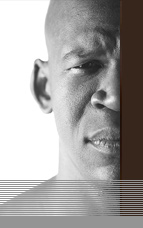Sleep-Related Eating Disorder
Imagine what it would be like if you woke up in the morning and found that someone had raided the refrigerator during the night. However, you live alone, and you are the only person who could be responsible-but you have no memory of having gotten up and eaten during the night.
If this sounds familiar, you may have sleep-related eating disorder, a condition that is receiving greater attention from the medical community and the media. Television talk show host Montel Williams announced that he might have sleep-related eating disorder during a discussion of different forms of sleepwalking:
"I get up at 2:00 to 4:00 in the morning, every morning, and I'm eating something," Williams said. "And it's gotten to the point where I have to literally take raw foods out of my refrigerator because I have eaten some raw stuff....I know I did because I wake up in the morning, and there's a pack of chicken, and there's a bite missing out of it....I can take a whole pound of ham or bologna and eat the whole....pound and then wake up in the morning and not realize that I had ate [sic] it...."
What is sleep-related eating disorder? In Principles and Practice of Sleep Medicine , 3rd edition (2000), the authors make a distinction between sleep-related eating disorder and nocturnal eating syndrome, "which was originally described as a combination of insomnia and nocturnal binge eating with morning anorexia. Patients with nocturnal eating syndrome also have recurrent awakenings from sleep associated with inability to get back to sleep without eating. Patients are fully awake during these episodes and able to remember them the next day...." Sleep-related eating disorder usually begins in adulthood and is characterized by eating episodes which occur after sleep onset.
The condition is far more prevalent than previously thought, according to Mark Mahowald, MD, Director of the Minnesota Regional Sleep Disorders Center, and Carlos H. Schenck, MD, of the Department of Psychiatry at the University of Minnesota Medical School in Minneapolis.
In an article published in NSF's Sleep Medicine Review (January 1994), they identified the effects of the disorder, including:
- weight gain (or failure to lose weight when dieting);
- fear of choking while eating during sleep;
- fear of injury from starting fires or while preparing foods during sleep;
- sleep disruption; and
- a feeling of loss of control.
However, the primary symptom is almost nightly eating after falling asleep. Patients may try to avoid sleep-eating by locking the refrigerator or the bedroom door, paying someone to sleep in the kitchen, or placing derogatory signs on the refrigerator-all to no avail.
Who has sleep-related eating disorder? Two-thirds of the patients are women, and the average age is 27 (although it is a behavior that usually begins in the late teens and early 20s). Almost three-fourths eat nightly-some up to eight times a night. Most prefer high-calorie food, and 43% are overweight. A study shows that 84% are either completely unaware or only partially aware of their nighttime eating.
"I try not to focus on whether the person is fully awake, because it's not that relevant," says David N. Neubauer, MD, Associate Director of the Johns Hopkins Sleep Disorder Center at the Johns Hopkins University School of Medicine. "And whether they remember eating or not isn't really an important distinction. What is important is that they are highly driven, that the behavior happens almost every night, and it usually begins about an hour after going to sleep."
What causes sleep-related eating disorder? Sometimes it is induced by a medication such as amitriptyline (a sedating anti-depressant) or zolpidem (a sedative medication), but other primary sleep disorders such as obstructive sleep apnea or periodic limb movement disorders may trigger the sleepwalking and sleep-eating. The most current research indicates it isn't connected with daytime eating disorders such as anorexia nervosa or bulimia. In most cases, it doesn't seem to be caused by hunger, since eating prior to bedtime often doesn't prevent sleep-eating. "This is not primarily an eating disorder," says Dr. Neubauer. "This is mostly a sleep disorder."
"In some cases there were apparent triggering events such as encephalitis, auto-immune hepatitis, narcolepsy, cessation of drug/alcohol abuse or smoking or stress," wrote Mahowald and Schenck, "Slightly more than one half of one large series of patients reported a past history of repeated emotional, physical or sexual abuse beginning during childhood." However, they noted that while many patients have either a mood or anxiety disorder, there was no direct association between the psychiatric condition and the sleep-eating. Dr. Neubauer adds that the disorder seems to be a relative of non-REM parasomnias-arousal disorders such as sleep terrors or sleep walking.
What is the treatment for sleep-related eating disorder? A number of medicines have been tried to treat these disorders, including dopaminergic agents, anti-convulsants, anti-depressants, and opiates. However, Dr. Neubauer is optimistic about finding an effective treatment. "There are several reports in the literature of a wide variety of medications and also several behavioral and psychotherapeutic strategies," he says. "Success has been limited with all of these in certain patients; however, there is not yet a consensus of a particular treatment approach being effective for a majority of people.
"I believe there is a lot of potential in behavioral/psychotherapeutic interventions, perhaps in combination with medication. This is a fascinating sleep disorder, and I'm hopeful there will be further research." | 

